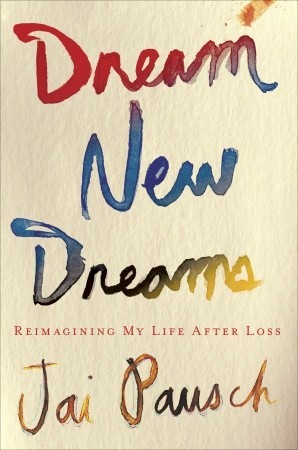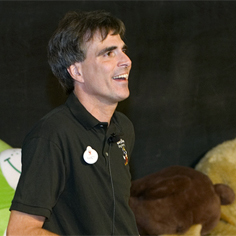There’s a good chance you’re familiar with Randy Pausch, a computer-science professor who delivered a poignant speech in September 2007 while he was dying of pancreatic cancer.
It resulted in an incredible 2008 best-seller, “The Last Lecture,” and a video that has racked up nearly 15 million views on YouTube.
It’s no surprise that so many people have been touched by Pausch. In the lecture and book, he exhibited incredible optimism, humor, courage, wisdom and charm in the face of an illness that took his life 10 months later.
But Jai Pausch’s memoir of her husband’s death at 47 and its aftermath, “Dream New Dreams: Reimagining My Life After Loss,” shows us another side as well: Randy could be irritable, argumentative, self-absorbed, controlling, even condescending.
Is this supposed to shock us? No. Jai Pausch doesn’t tarnish his memory, but what her memoir shows readers is that, in his sufferings, her husband was like any of us.
Her book gives us something else as well: A heartfelt plea for understanding and compassion when it comes to the cancer patient’s family.
“Patients need and deserve support,” she explains, “but it’s time for us as a community to understand the suffering that is shouldered, sometimes silently, by our family members, neighbors, friends and co-workers. We need to offer help to these people we need to care for the caregiver.”
The Pausches were probably better prepared for a catastrophic illness than most families. With his diagnosis, like the scientist he was, Randy kicked into “engineer mode” almost immediately, Jai says, and together the couple devised a battle plan, found good doctors and picked the most potent treatments in the period of time when other families are still in shock.
“(W)e were now on cancer time,” she recalls, “in which each minute of every hour counted as never before. If we had remained paralyzed with fear or chosen not to act, we could have lost traction in the fight against the cancer and lost precious time.”
Randy worked furiously on a future financial scenario for Jai and their three children, all younger than 5 when he fell ill. Carnegie Mellon, where he taught, was highly supportive, and there was the considerable boost produced by that best-selling book.
He appealed directly, firmly to their entire family for help with baby-sitting and grocery shopping, matters large and small.
Randy even suggested that the couple give up their 4-month-old baby girl, Chloe, for adoption. Why? To ease the burden on Jai, who says the words “struck me like a punch in the gut.”
Well, scientists are known for brainstorming ideas; not all of them are good ones.
It seemed the Pausches had their bases covered. But nothing is ever simple with cancer, and no diagnosis goes exactly as the medical books say.
Surgery and powerful chemotherapies failed to stop the disease, even though Randy had been hopeful, emailing his family that the “median age for this disease is 66 and so there is some reason to believe my odds will be better than the typical patient’s (I’m 45 and in good physical shape).”
Everything changed so quickly: treatment shifted to palliative care, the success of Randy’s final lecture became a media whirlwind, and all the while Jai looked at her young children wondering, what do I say to them? And just as important: What will happen to me after?
The book doesn’t end with Randy’s death in July 2008. There are still many pages to go as Jai shows how she answered both questions for her family.
She describes her pain and grief, and her children’s grief, which even now “seems to recur at different times, flaring up and then quieting down again. A developmental milestone or being overly tired can trigger their feelings, causing tears to stream down their little faces.”
She writes of the challenges of being a single parent, of loneliness and the discomfort of facing the dating scene (Pausch has since remarried), but also of finding a new sense of purpose in the world at large:
Today, Pausch is an impassioned advocate on behalf of research into pancreatic cancer.
This book, like most cancer memoirs, hits on the absurdity that cancer produces.
Yes, patients and their families do enter a vast community of fellow sufferers, but rarely can one feel so isolated, so surrounded by high walls, as after a diagnosis.
And yet Pausch’s vital message for all caregivers — that life will go on because it must — is more than capable of scaling these walls.
Send questions/comments to the editors.




Success. Please wait for the page to reload. If the page does not reload within 5 seconds, please refresh the page.
Enter your email and password to access comments.
Hi, to comment on stories you must . This profile is in addition to your subscription and website login.
Already have a commenting profile? .
Invalid username/password.
Please check your email to confirm and complete your registration.
Only subscribers are eligible to post comments. Please subscribe or login first for digital access. Here’s why.
Use the form below to reset your password. When you've submitted your account email, we will send an email with a reset code.